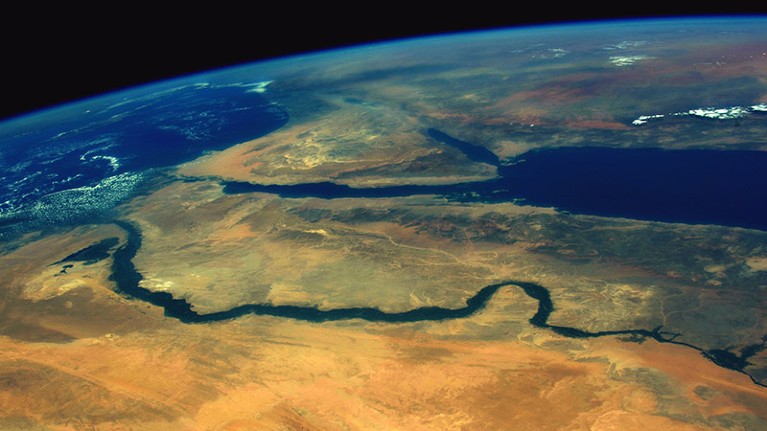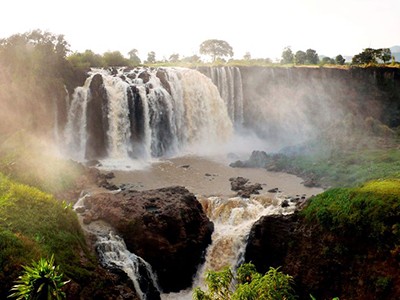
The Grand Ethiopian Renaissance Dam is nearly two-thirds complete.Credit: NASA/Planet Pix/ZUMA
Scientists investigating the hydrology of the Nile are likely to have heard the story of their tenth-century predecessor, mathematician and physicist Ibn al-Haytham. The ruler of Egypt asked al-Haytham to dam the river, but it proved too great an engineering challenge. Fearing the caliph’s wrath, al-Haytham is said to have feigned illness to avoid being punished.
Thankfully, the scientists currently advising Egypt, Ethiopia and Sudan on the Grand Ethiopian Renaissance Dam do not face anything like the same risks. But they are nevertheless under pressure as talks between the three countries — and especially between Egypt and Ethiopia — have hit an impasse.
Gigantic Nile dam prompts clash between Egypt and Ethiopia
Ethiopia says the hydropower dam is needed urgently, because two-thirds of the country has lacked electricity for too long. Egypt is in less of a hurry. Ninety per cent of its fresh water comes from the Nile, and it is concerned that the dam will create water scarcity for its 100 million inhabitants over the five to seven years needed to fill the dam’s reservoir. Last week, Egypt decided that it wants another country to mediate the dispute — naming the United States as its preferred choice. Ethiopia rejects this proposal. This is an unfortunate turn of events. There might well be a need for mediation, but now is too soon. The countries are still waiting for the outcome of an independent scientific assessment of the dam’s risks to downstream countries.
In 2015, Egypt, Ethiopia and Sudan agreed that an expert panel, the National Independent Scientific Research Group (NISRG), would assess the environmental impacts of each country’s preferred timetable for constructing the dam. The group has been meeting regularly and is preparing to produce a consensus report and provide recommendations. But Egypt’s decision to call for mediation before the scientists have had a chance to report puts the NISRG in an awkward position: the researchers representing Egypt, especially, might feel pressure not to write or say anything that could undermine their government’s negotiating position.
Instead of rushing straight into mediation, the countries should let their scientific advisers complete the task that has been asked of them. The researchers should be allowed to publish their findings for scrutiny by everyone concerned, not least the citizens of the three countries, who will be most affected by the dam.
International involvement might be needed if the scientific advisers are unable to produce a consensus report, or if, once the findings are published, political leaders are unwilling or unable to shift their positions. But until then, Egypt, Ethiopia and Sudan need to let the researchers finish the job they have been asked to do.

 Gigantic Nile dam prompts clash between Egypt and Ethiopia
Gigantic Nile dam prompts clash between Egypt and Ethiopia
 Climate change enhances interannual variability of the Nile river flow
Climate change enhances interannual variability of the Nile river flow
 Water shortages loom for Asia’s new power plants
Water shortages loom for Asia’s new power plants
 Clear signs of global warming will hit poorer countries first
Clear signs of global warming will hit poorer countries first





